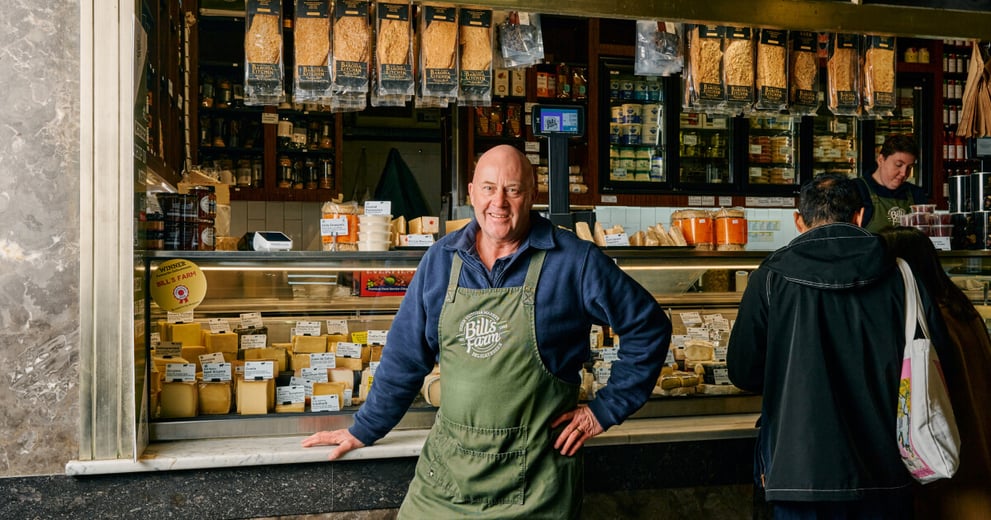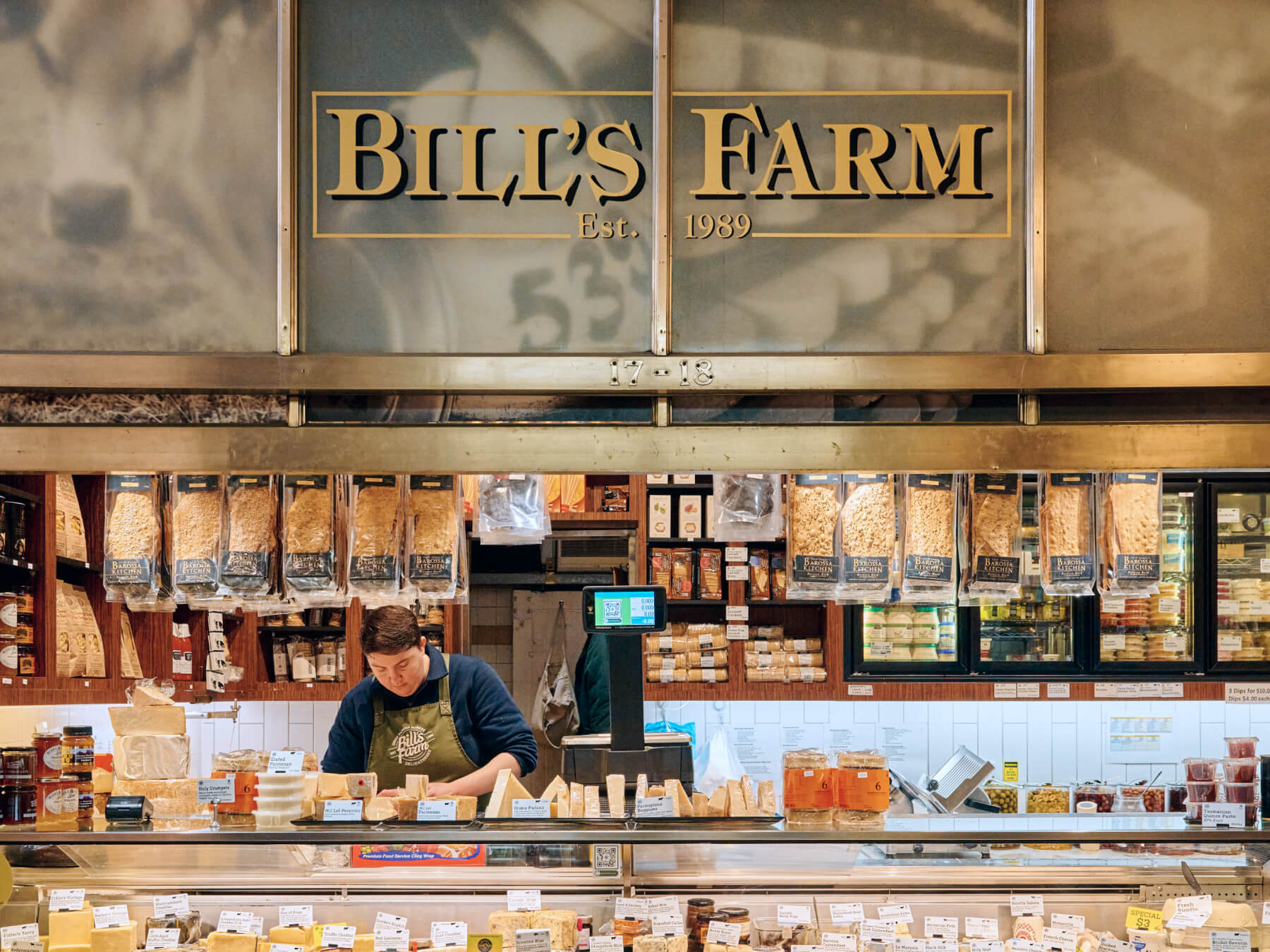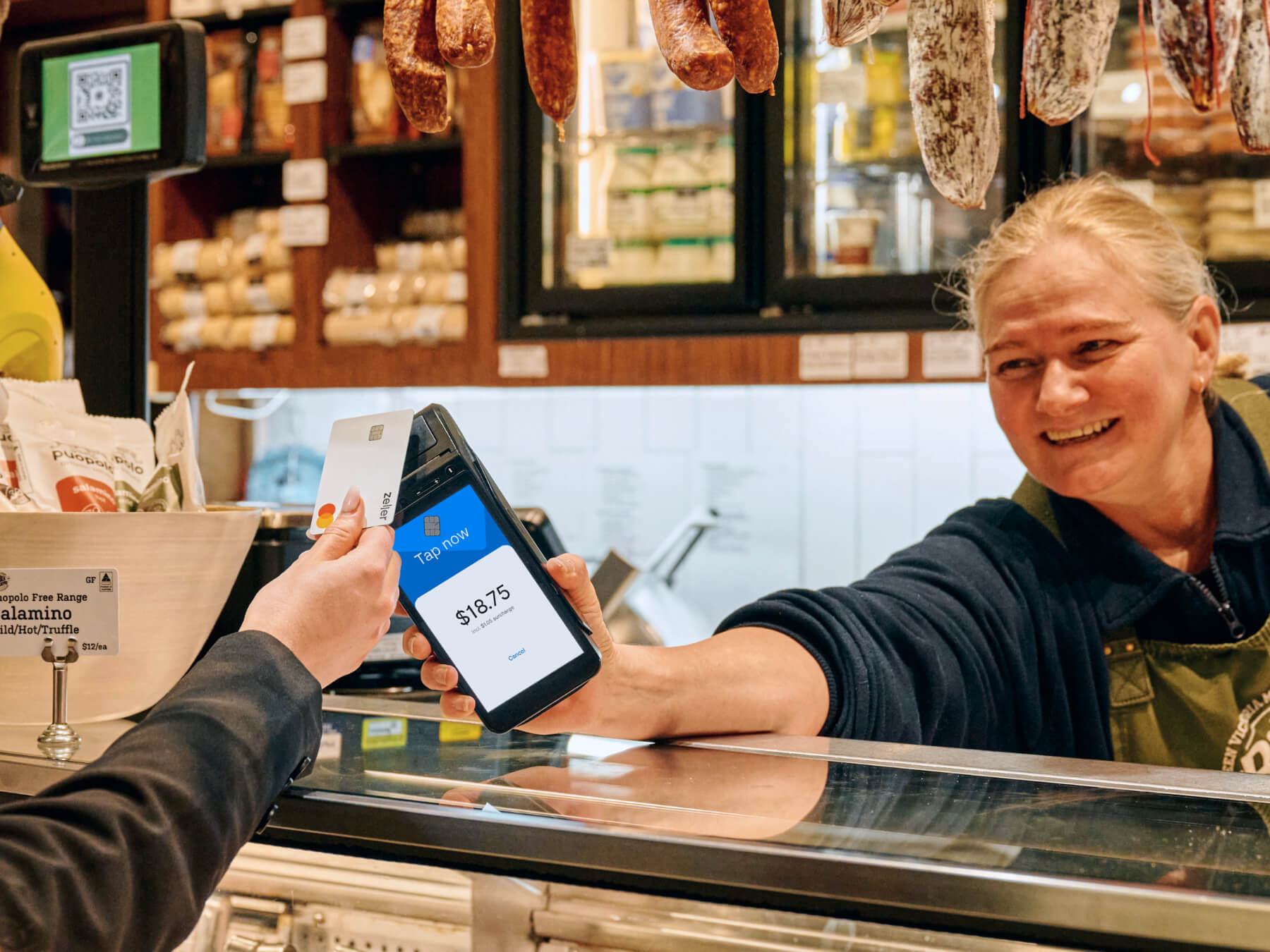Introducing Zeller for Startups.
Don’t waste time assembling disparate tools or waiting in line at a bank. Zeller for Startups is an all-in-one financial solution for founders, by founders.
8.08.2023

After cutting his teeth at Target in the late 80s, Malcolm went on to open the very first Bunnings store in 1994, later assuming the title of Managing Director for the Disney stores across the Asia-Pacific. After a stint at Starbucks in the USA, he was eventually headhunted for the role of CEO at the Queen Victoria Market where he was instrumental in putting together the plan for the market’s new redevelopment. However, a desire to get back to his roots sparked a career change, and when he got the inside scoop on one of the market stalls going up for sale, it was all the convincing he needed.
In 2017, Malcolm and his wife Anna took over Bill’s Farm – a stalwart of Victoria Market’s iconic deli hall that’s been dispensing cheese and cold cuts for nearly three decades. When asked what it was like swapping an executive office for a cosy 32-square-metre shopfront, Malcolm says the move was natural: “Managing 600 stores and 6,000 staff is obviously more strategic as opposed to hands on, but you're still in the stores. Most of my roles have been operational, spending time on the ground, seeing the staff, talking to them about what's working, what's not working. So none of that was any different other than the fact that I’m actually spending a lot more time with customers.”

While you can take the man out of the strategy, you can’t take the strategy out of the man. Malcolm’s approach to business leans heavily on his years of corporate retail experience. From customer service to stock rotation, staffing and business development, nothing is left to chance. When COVID hit, Malcolm was quick to come up with a strategic roster: “We had two teams of staff with two different weeks. One week on, one week off, but we still paid them every week. It just meant that if one of the people on one team got COVID, that whole team would go away to isolate, and the other team would come in and run the business. So, we were never in a situation where we had to close.”
This highly considered approach is implemented across every facet of Malcolm’s business and it shows. “We manage our stock extremely well to the point that we have 26 stock turns a year. So we turn over the stock in the whole store every two weeks. We have very minimal wastage.” An enviable result and one that Malcolm and Anna have achieved through employing the ‘open-to-buy’ approach, a common retail strategy that ensures your inventory remains balanced at the perfect level to meet demand, and avoid over or under stocking. “We know exactly how much dollar value we can spend each week. We're not just going and buying. We also take the kitchen pantry approach: we have 510 products, but we're not going to get Kellogg's cornflakes in until we've taken Coco Pops out.”

Closely following every dollar that goes out and comes in, is one of the keys to the deli’s success, but Malcolm doesn’t do it alone. His armada of tech tools – Xero, Zeller and Atria point-of-sale – integrate together, allowing him and Anna to track every transaction and expense down to the cent. “With the POS, we know how much margin we make per product per day. It's just phenomenal the data that you can get.” he explains, “I think there are a lot of businesses out there that don't understand how much things cost and don't have an opinion on how their business performance is going. We look at it every week. We know exactly where our profit is going to finish at the end of the financial year, and then we'll forecast for the next financial year. We'll measure it every week to see how we're going against that budget.”
For Malcolm and Anna, a key component of this analysis was unlocked when they transitioned their EFTPOS to Zeller Terminal. “Our merchant fees in the 2019-2020 financial year totaled $28,000… it was just out of control.” explains Malcolm, who became exasperated by the banks’ lack of flexibility especially when cashless payments skyrocketed during COVID. Thanks to their new EFTPOS solution, they’re spending less on merchant fees and saving money through strategic staffing: “The Zeller Dashboard is really handy for giving us information about when those transactions are happening. If they are varying at certain periods of time in the day, it means that we've got a requirement for less or more people. So we use it to help our rostering.”
If the ebb and flow of customers are worth monitoring anywhere, it’s the Queen Victoria Market. From the sudden halt of tourism at the beginning of the pandemic to the surge in people working from home, and the swelling local population living in new high-density developments, customer trends have changed significantly in recent years. “We no longer get that regular lunchtime customer who’s working in the city… and there aren’t as many tourists as there used to be. But we’re finding that we’re picking up new customers every single week from people who are moving into town, especially young university students but also just people living in the city.” Malcolm explains.
Despite the market’s near 150-year history, running a successful business within it comes down to understanding the value it brings to today’s customer. The shifting demographic is having an impact not only on when customers are coming, but what they are buying. “We're finding that customers want to see what the new cheese is, what the new product is… they're looking for something different. They don’t necessarily want to do what they did yesterday.” says Malcolm. Having worked in other densely populated cities such as Hong Kong and Singapore, the retail specialist understands exactly why this is: “When people live above the shops they shop in, you need to constantly change your offer to make something different, better, put new stuff in.” he explains.
Looking ahead, Malcolm has no plans of slowing down. He’s closely following the five-year business plan that he established when he took over Bill’s Farm, which includes growing their online orders and corporate catering. In-store, he’s intent on continuing to keep his customers and staff happy, and for that, he’s always prepared to change tack. “One of the things I love about retail is that you can change something today and see the results immediately. In other businesses it sometimes takes a long time to get through that process of strategy becoming reality.” Indeed, agility has proven to be the pillar of success for Bill’s Farm, which has held steadfast through a pandemic and now a cost-of-living crisis. “All you have to do is think big, act small and start now.” Coming from a retail veteran whose strategies have served him at Disney as they have in the deli, his maxim is one worth remembering.
To read about other Australians growing their businesses with Zeller, head to the Zeller Business Blog and sign up to our newsletter to receive stories straight to your inbox.